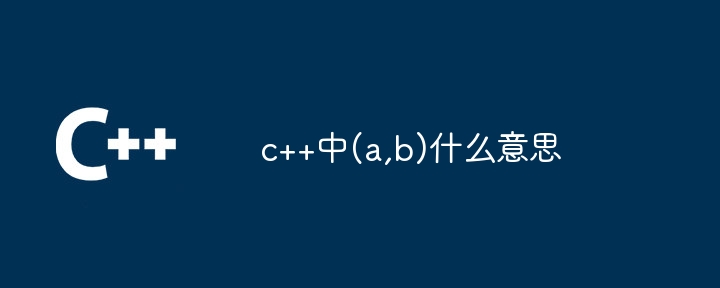Home >Backend Development >C++ >What does (a,b) mean in c++
What does (a,b) mean in c++
- 下次还敢Original
- 2024-05-09 02:30:25909browse
(a,b) in C represents a tuple, which is an ordered collection of elements. Tuples can contain two or more elements of any type, used to combine related values, and elements can be accessed using the subscript operator. The element types of tuples cannot be modified. Tuples can be created using the std::make_tuple function or braces, similar to structures, but the order of elements in a tuple is important.

(a,b)
In C, the bracket expression (a, b) is a tuple, which represents an ordered set containing two elements. The elements a and b can be of any type.
Usage
Tuples are often used to group multiple related values together. For example, you can use a tuple to store a coordinate pair or a user name and age pair.
Accessing elements
You can use the subscript operator ([]) to access elements in a tuple. For example:
<code class="cpp">std::tuple<int, std::string> myTuple = {1, "John Doe"};
int myInt = myTuple[0];
std::string myString = myTuple[1];</code>
Creating tuples
There are two ways to create tuples:
- Using
std ::tupleFunction:
<code class="cpp">std::tuple<int, std::string> myTuple = std::make_tuple(1, "John Doe");</code>
- Use curly brackets:
<code class="cpp">std::tuple<int, std::string> myTuple = {1, "John Doe"};</code>
Notes
- The element type of a tuple is fixed and cannot be modified.
- Tuples can be nested within other tuples.
- Tuples can be similar to structures, but the order of the elements in a tuple is important, while the order of the elements in a structure is not.
The above is the detailed content of What does (a,b) mean in c++. For more information, please follow other related articles on the PHP Chinese website!

